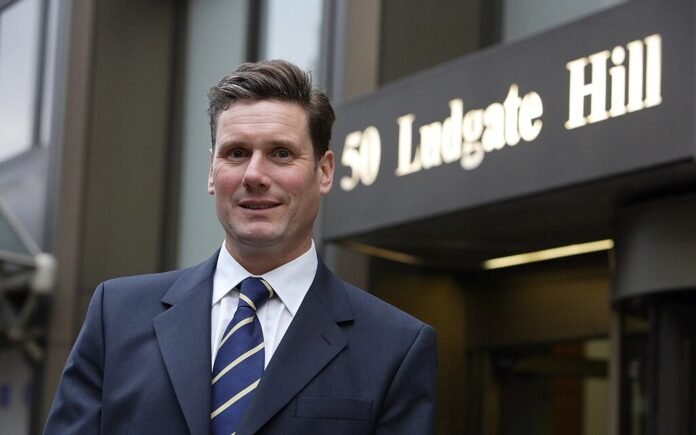Keir Starmer backtracks on benefit cuts, but furious MPs say it’s too little, too late
The rebellion may have simmered down, but Labour backbenchers are still fuming after Prime Minister Keir Starmer was forced into a dramatic U-turn on welfare cuts that nearly blew up his premiership just weeks before marking a year in power.
“What an absolute bloody shambles!” declared one Labour MP who now backs the revised plans — hardly a glowing endorsement.
The prime minister’s attempted crackdown on benefits faced a wall of resistance from within his own party, prompting a last-minute retreat. Under pressure, Starmer announced that tougher criteria for claimants would apply only to new applicants, sparing existing recipients.
But it hasn’t smoothed things over.
“It’s tinkering with a broken bill,” said another MP. “They think we’re fools.”
Starmer’s concession came after a bruising week in which MPs were deluged by furious emails and emotionally charged constituency surgeries. Debbie Abrahams, who chairs the Commons Work and Pensions Committee, cautiously welcomed the move but warned she still couldn’t back the plans — hinting at more dissent ahead.
Labour’s internal grassroots network Disability Labour is still urging outright rejection of the policy, and multiple MPs remain unconvinced.
One backbencher accused No. 10 of treating MPs as “inconveniences to be managed, not colleagues to be heard.” Another added: “When we’re invited into Downing Street — and it doesn’t happen often — it’s only to be told what to think.”
The spotlight is now firmly on Morgan McSweeney, Starmer’s chief of staff, and the whips’ office, accused of misreading their own MPs. “They didn’t think new MPs would have the balls to stand up to them,” one senior figure said.
Some in government now fear that Chancellor Rachel Reeves’ six-month fiscal rule cycle will trigger more damaging cut-hunts — and more rebellions.
“This isn’t the end of it,” said one senior Labour figure. “It’s just the start.”
Calls for a new chancellor are growing louder. Critics within Labour argue that Reeves’ rigid approach is boxing the government into unpopular decisions. But supporters of Starmer and Reeves insist they’re the face of a modern, responsible Labour Party — one that wins votes by reassuring markets and talking tough on spending.
Yet this week’s turmoil has made clear that the mood inside Labour is fracturing. The PM’s reputation for control and discipline is unravelling.
Starmer only deepened the crisis by giving a weekend interview to his biographer, Tom Baldwin, where he disowned previous rhetoric on immigration. Last summer, Starmer said immigration had done “incalculable damage” and warned Britain was becoming “an island of strangers.” Now, he says both comments were “mistakes.”
Instead of healing wounds with the left, the interview managed to infuriate his own allies. One loyalist branded the PM’s remarks “outrageous.” Another said he was “throwing his closest aides under the bus.”
A senior source close to the leadership fumed: “Too angry to speak about it.”
As his first year in office draws to a close, Starmer is left reeling. He’s lost support on the left, shaken faith among the centrists, and baffled the public with policy reversals and mixed messages.
“He can’t seem to get anything right,” said one weary MP.
Now the challenge is stark: define what Labour stands for, repair relations across the party, and avoid the next crisis.
Because for all the talk of competence, Starmer’s government just looked dangerously chaotic.
Embed from Getty ImagesTHE INDEPENDENT
Sir Keir Starmer’s welfare U-turns have triggered a £4.5bn shortfall in public finances, according to analysis by the Resolution Foundation and IFS, raising the likelihood of tax hikes or spending cuts in Rachel Reeves’ autumn Budget. The government had planned to save £5bn by 2030 through cuts to Personal Independence Payment (PIP) and Universal Credit. But after pressure from over 120 Labour MPs, Starmer agreed to protect current PIP claimants and Universal Credit recipients with health conditions—measures now projected to cost up to £3.2bn.
Combined with last month’s reversal on winter fuel payments, these U-turns have undermined fiscal plans. Economists like Jonathan Portes say higher taxes are inevitable, given public service demands and an ageing population. While Care Minister Stephen Kinnock avoided Budget speculation, Labour faces mounting criticism—including claims the concessions create a two-tier benefits system. Despite some rebels holding firm, the softened reforms are now likely to pass through the Commons.
THE GUARIAN
Keir Starmer’s government remains embroiled in a major row over its welfare bill, with around 50 Labour MPs still resisting despite last-minute concessions. The backlash centres on fears the proposed changes will create a “two-tier” system for disability benefits, favouring current claimants over future ones. On Monday, rebels plan to lay a fresh amendment to delay the bill.
Although No 10 offered to protect existing PIP and Universal Credit health-element recipients, the £2.5bn cuts still target future claimants. Charities warn those with fluctuating or reapplying conditions post-2026 will lose support, affecting 430,000 people by 2029. Disability groups and Labour left-wingers argue the bill remains a cost-cutting exercise that betrays the party’s values.
While Starmer insists the revised package balances fairness and reform, many MPs say they need clearer guarantees and criticise No 10’s heavy-handed tactics. Campaigners argue the concessions offer little real security, deepening mistrust as Labour marks its first year in office.
